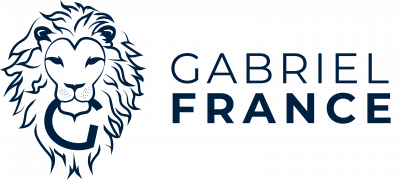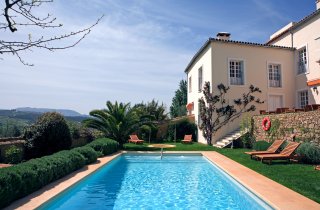
How to define your budget for a real estate purchase?
How to define your budget for a real estate purchase?
When it comes to buying a property, the first question to ask yourself is: what is your budget? Setting your budget realistically is essential to guide your research and avoid wasting time on properties that are out of your reach. This guide will help you understand how to calculate what you can and want to spend on your home purchase.
Sources of funding
Your real estate budget comes mainly from three sources:
Your liquidity
These are the funds immediately available to the bank. Calculating your cash flow is simple: add up all your savings and the amount of money available in your bank accounts. This includes:
Example: If you have €20,000 in a savings account and €10,000 in your current account, your cash is €30,000.
Your investments
Your investments represent the money you can get from the sale of assets such as:
Estimate: For financial investments, consult your financial broker or advisor to find out their current value. For real estate, consider a market valuation. For example, if you own an apartment valued at €150,000, you can potentially add this sum to your budget after it is sold.
Your borrowing capacity
Your borrowing capacity is the money you can borrow from a bank. To assess this, you should contact your broker (0786319916) or banker who will calculate the amount you can borrow based on:
Practical calculation: Banks generally use the 35% criterion to determine your borrowing capacity. For example, if you earn €3000 per month, the bank considers that you can devote up to 35% of your income to loan repayment, i.e. €1050 per month. If you already have a loan with a monthly payment of €550, you can still borrow up to €500 per month, or about €100,000 over 25 years.
Your liquidity
These are the funds immediately available to the bank. Calculating your cash flow is simple: add up all your savings and the amount of money available in your bank accounts. This includes:
- Your savings accounts
- Your passbooks
- Your current account
Example: If you have €20,000 in a savings account and €10,000 in your current account, your cash is €30,000.
Your investments
Your investments represent the money you can get from the sale of assets such as:
- Stocks and bonds
- Secondary real estate
- Valuables (art, jewelry, etc.)
Estimate: For financial investments, consult your financial broker or advisor to find out their current value. For real estate, consider a market valuation. For example, if you own an apartment valued at €150,000, you can potentially add this sum to your budget after it is sold.
Your borrowing capacity
Your borrowing capacity is the money you can borrow from a bank. To assess this, you should contact your broker (0786319916) or banker who will calculate the amount you can borrow based on:
- Your income
- Your personal contribution (cash and investments)
- Your recurring expenses (rents, current loans)
- Your existing expenses
Practical calculation: Banks generally use the 35% criterion to determine your borrowing capacity. For example, if you earn €3000 per month, the bank considers that you can devote up to 35% of your income to loan repayment, i.e. €1050 per month. If you already have a loan with a monthly payment of €550, you can still borrow up to €500 per month, or about €100,000 over 25 years.
Financial Calculator
Calculate your total budget
To get your total budget, add up your cash flow, the value of your investments (once sold), and your borrowing capacity.
Example:
Total budget: €30,000 + €150,000 + €100,000 = €280,000
Example:
- Liquidity: €30,000
- Value of investments: €150,000
- Borrowing capacity: €100,000
Total budget: €30,000 + €150,000 + €100,000 = €280,000
Don't forget the associated fees
In addition to the price of the property, don't forget to include notary fees in your budget. Notary fees vary according to the age of the property:
Example: For an old apartment at €200,000, you will have to pay about €16,000 in notary fees, for a total of €216,000.
Formalize your budget with a loan simulation
A loan simulation, carried out by your bank or by our broker (07 86 31 99 16), helps you formalise your budget. This document, although not binding for the bank, shows that you have prepared your file and strengthens your credibility with the sellers.
Defining a budget for your real estate purchase is an essential step that requires taking into account your liquidity, your investments, and your borrowing capacity. By including notary fees and using tools like bridge loans, you can establish a realistic budget that will guide you in your search.
- 7 to 8% of the price for an old property
- 3 to 4% of the price for a new property
Example: For an old apartment at €200,000, you will have to pay about €16,000 in notary fees, for a total of €216,000.
Formalize your budget with a loan simulation
A loan simulation, carried out by your bank or by our broker (07 86 31 99 16), helps you formalise your budget. This document, although not binding for the bank, shows that you have prepared your file and strengthens your credibility with the sellers.
Defining a budget for your real estate purchase is an essential step that requires taking into account your liquidity, your investments, and your borrowing capacity. By including notary fees and using tools like bridge loans, you can establish a realistic budget that will guide you in your search.
Posted on 17/06/2024 by
Cyril POTTIER
Entrepreneur and founder of the agency GABRIEL FRANCE, my career began in the field of accounting, but my passion for real estate led me to this captivating adventure. With GABRIEL FRANCE, we bring our expertise to every stage of real estate, from purchase to sale, including rental management. Through each transaction, our goal is simple: to ensure your satisfaction.




